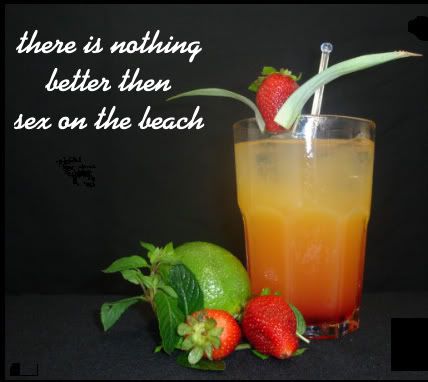Timing is everything
Headache, irritability and mood swings….they’re going to disappear someday. Promise.
Research findings show that certain symptoms commonly linked with menopause decline linearly, meaning that as you move through the transition, those bothersome symptoms will move with you and then gradually diminish. Phew!
A study that appeared in Obstetrics & Gynecology early last year showed a direct association between menopausal symptoms and reproductive hormones at any given time during the menopause. Researchers evaluated menstrual bleeding patterns, symptoms and levels of estradiol, follicle-stimulating hormone (FSH) and testosterone in women over a nine-year period. Stages of menopause were analyzed based on bleeding patterns. All women underwent structured interviews, completed symptoms questionnaires and were followed for bleeding dates and hormone measures.
The results showed that headache was significantly associated with stage of menopause, declining in the pre- to postmenopause transition. Mood swings and irritability were both associated with declining FSH levels. Additional analyses also revealed a link between PMS, perceived stress and all three of these symptoms (i.e. headache, irritability and mood swings).
So what about other symptoms like hot flashes and night sweats and depression? A small percentage of women may have to deal with them a bit longer. In fact, data suggest that they may persist well into the postmenopausal period although the reasons are not entirely clear.
Read MoreRelax…
[youtube=http://www.youtube.com/watch?v=lyl5DlrsU90]
The mind is a powerful thing when it comes to….sex during menopause.
Dr. Christian Northrup suggests that the mind plays as much a role in the ability or inability to experience pleasurable sex during the transition as estrogen and other hormones.
Indeed, a study recently published in Menopause Journal supports this supposition.
Researchers asked 200 Brazilian women between the ages of 40 and 65 to fill out a questionnaire on social/demographic factors, symptoms, behavior, reproduction and partner-related factors with the goal of determining things that influence painful intercourse (dyspareunia).
Overall, almost 40% of women surveyed experienced pain during intercourse, with study findings demonstrating that this was much more common in women who reported nervousness or depression. Conversely, factors that offered some protection against painful intercourse included the frequency of sexual activity.
The findings support Dr. Northrup’s contention that more is, well, more — that it is essential to incorporate healthy, sexual thoughts into our lives and engage in self- and partner-exploration often. Most importantly, we need to do things that keep us in touch with our life force, and cultivate inner pleasure in exchange for stress and emotions that accompany it.
Clearly, our minds and bodies are well connected. Take good care of both and that should help take are of any pain.
Read MoreFree Friday
This seemed like such an appropriate follow up to my last post that I just couldn’t resist.
Happy Friday!
Read MoreWalk on by
[youtube=http://www.youtube.com/watch?v=0R-ZE-gFcBA]
Lord I need a new attitude; I’ve been in hormonal hell for the past 5 days.
Menopause Divas, you KNOW what I’m talking about. Hormonal Hell, that valley between crying and killing where everything hurts just a wee bit – head, back, stomach, eyes – you name it.
There have been moments of clarity and fun, laughs, smiles… But I keep ending up back in the valley.
This morning, I tried to find a few menopause jokes to cheer me up. Mood ring, light bulb, change, seven dwarfs…you name it. I don’t find any of these all that funny (if you’re wondering what the heck I’m talking about, just do a search for menopause jokes on Google). Even the tee “Does this shirt make me look menopausal?” didn’t work.
I’ve tried an hour of aerobics for the past two days.
Nope, hasn’t worked.
A little bit of retail therapy.
Nope.
Red velvet cake.
Nope.
So, Mistress Estrogen, evil queen of my present domain, I give in. And if you see me on the street and I look, well, menopausal, please walk on by. I’ll be back soon.
Read MoreSex on the beach

Okay. I’m not really going to write about having sex on a beach or that tropical drink. But now that I have your attention, I want to bring attention to a new study that I stumbled across recently.
This particular topic is of interest to me and clearly, I’ve written about sex and the transition numerous times. And since I’m in the middle of Dr. Christine Northrup’s ‘The Secret Pleasures of Menopause’ I do have sex on the brain at the moment. More on the book at a later date.
Although sexual concerns are reportedly very common among menopausal women, low sexual function can be attributed to many factors, including attitudes and beliefs about the transition, changes in body image, health, stress, fatigue, partner’s sexual function, and the role of intimacy in the relationship. Importantly, up to 47% of women may experience depression during menopause and in fact, findings from the Massachusetts Women’s Health Study suggest that aging and menopause affect sexual function less than general and mental health.
In this particular study, published in the online edition of the journal Maturitas, Turkish researchers evaluated association between depression and change in sexual function in 300 women in menopause.
Among the participants, 65% had low sexual function. This included low desire (40%), low arousal (82.7%), low lubrication (63%), low orgasm (75%), low satisfaction (82.7%), and pain during sexual activity (54.3%).
Although only a third (29.3%) of women were identified as having depression, the researchers found a significant association between desire and depression scores throughout the menopausal transition. As depression increased, so did sexual dysfunction.
These findings imply that sexual dysfunction during menoapuse may be as much a result of atttitude and emotional health as hormones if not more so.
Dr. Christine Northrup explores some interesting solution to these problems. Stay tuned!
Read More






